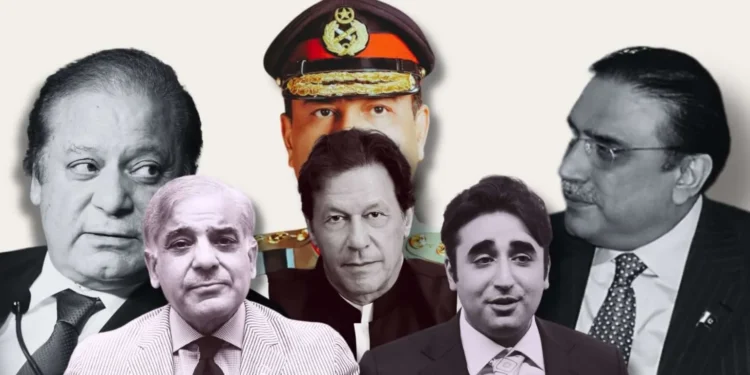Pakistan stands at a pivotal juncture as it braces for its third consecutive civilian parliamentary election on February 8, 2024. This election, occurring against the backdrop of historical political turbulence and military interventions, carries unprecedented significance for the nation.
The Context:
With a population of 241 million and a geopolitical landscape marked by strategic alliances and rivalries, Pakistan’s electoral processes have always been closely watched. The shadow of alleged military interference adds layers of complexity to an already intricate political scenario. As the nation yearns for political stability, the outcome of this election is poised to shape Pakistan’s trajectory on the global stage.
Key Players:
Nawaz Sharif’s Political Resurgence:
Nawaz Sharif, a three-time former Prime Minister, reenters the political arena after a period of exile and legal controversies. Cleared of all charges just ahead of the elections, Sharif’s potential fourth term is speculated to be facilitated by intricate dynamics involving the military establishment and the judiciary.
Imran Khan’s Legal Battles:
Imran Khan, once the harbinger of change, faces imprisonment during the election, with charges deemed by his supporters as politically motivated. Despite a popularity dip due to economic challenges and controversies during his previous term, Khan’s Pakistan Tehreek-e-Insaf (PTI) remains a significant political force.
Bilawal Bhutto-Zardari’s Political Aspirations:
Bilawal Bhutto-Zardari, the young scion of the Bhutto dynasty, leads the Pakistan People’s Party (PPP) with aspirations to transcend dynastic politics. As the potential kingmaker in a fractured political landscape, Bilawal navigates a path distinct from the dominant PML-N and PTI.
Challenges and Concerns:
The electoral landscape is fraught with challenges, including the disqualification and coercion of candidates, harassment of journalists, and perceived interference from the judiciary and military. Against this backdrop, the electorate’s primary concerns revolve around economic stability, job creation, and the long-term trajectory of the nation.
As Pakistan approaches this critical electoral juncture, the intricate interplay of political dynamics, legal intricacies, and concerns about external influences come to the fore. The decisions made on February 8, 2024, will not only determine the immediate political landscape but will also have profound implications for Pakistan’s standing on the global stage. The collective aspiration for relief from economic challenges and a stable future underscores the gravity of the choices to be made, making this election a defining moment in Pakistan’s democratic history.
















